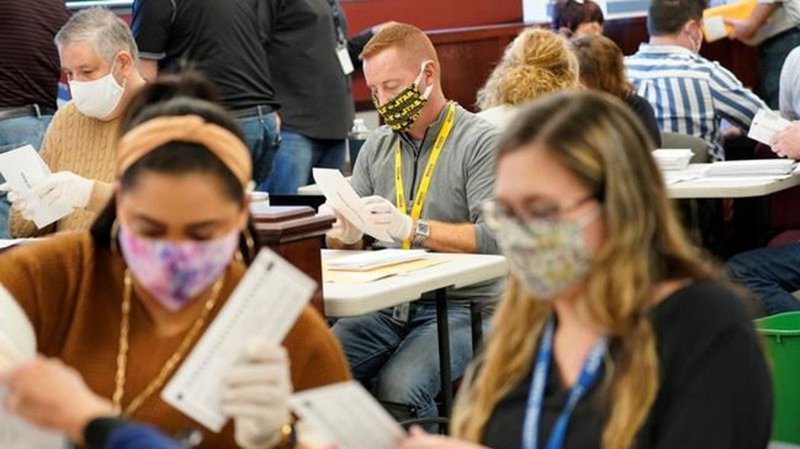
U.S. could learn from elections in other countries including Canada: expert
The United States could have avoided the “crippling political paralysis” it is experiencing if it had a central elections administrator like in other democracies, says an American professor who teaches in Canada.
Prof. Jason Opal of the history and classical studies department at McGill University in Montreal said he worries his country’s “hyper-partisan hatred” will worsen even as millions of mail-in ballots are being counted.
Elections Canada is an example of a national agency that should have provided lessons for his country at least 20 years ago when the winner of the presidential race was undeclared for nearly three weeks, he said in an interview on Wednesday.
President Donald Trump and Democratic nominee Joe Biden have both suggested they would emerge as the victors, with Trump saying he would turn to the Supreme Court before ballots were counted in several battleground states including Pennsylvania and Michigan.
